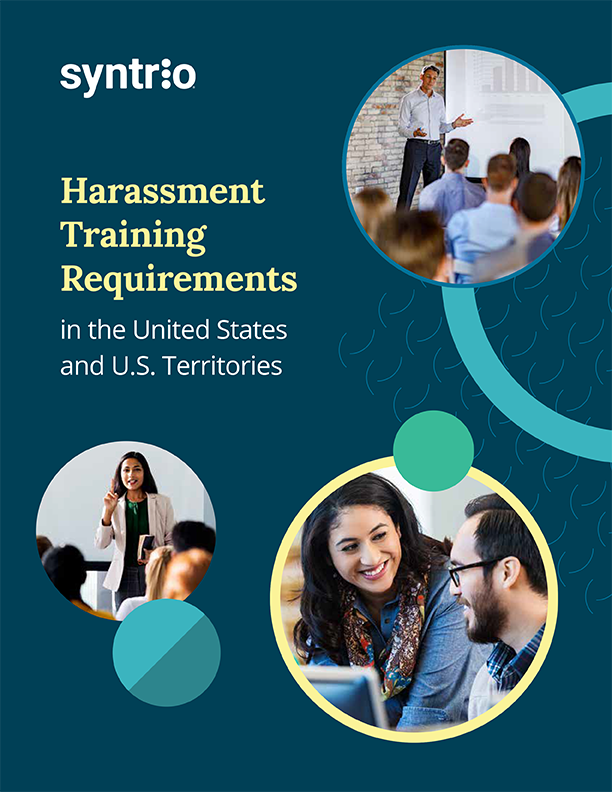STATE-MANDATED HARASSMENT TRAINING
California Sexual Harassment Training Requirements
California leads the way in tackling workplace sexual harassment and discrimination. The state recognizes the importance of educating companies and employees about the definition and implications of sexual harassment within its jurisdiction. In line with this commitment, California has introduced SB 1343, a recent law that expands the requirements for sexual harassment prevention training.
Preview the U.S. Workplace Harassment and Discrimination Training Course
Don’t Leave Compliance to Chance – Know the Harassment Laws (SB 1343) and Regulations for the State of California
California State-Mandated Training Requirements
Since 2006, California has had some of the most comprehensive harassment training requirements in the United States. In 2015, California amended its law to require training on preventing abusive conduct in the workplace. In 2016 the state began requiring training on the illegality of harassment based on sexual orientation, gender identity, and gender expression. Following a trend in harassment training legislation, in 2019, California expanded the coverage of its law (SB1343) to require all employees (supervisory or not) to receive training on the prevention of workplace harassment.
| What type of organization must provide training? | California’s harassment training law applies to all public and private organizations operating within the state. |
| What is the minimum number of employees for training to be required? | Employers with five or more employees must provide training on the prevention of workplace harassment and abusive conduct. Independent contractors, seasonal employees, interns, part-time and temporary employees count toward the five-employee requirement. |
| How frequently must training be conducted? | All employees must receive training at least once every two years under California law. |
| How soon must training be conducted? | Training must be completed within six months of assuming a position or within 30 calendar days if the employee is temporary or seasonal. Training must be provided to all non-supervisory employees by January 1, 2021, unless training was conducted in 2019, in which case training must be provided within two years after initial training. |
| What segments of the workforce must receive training? |
|
| What is the minimum duration of training? | California requires supervisory employee training programs to be at least two hours in duration; California requires non-supervisory employees to receive at least one hour of training. |
| What records must be kept following training? |
California requires the following training records to be kept for at least two years:
|
| What are potential penalties for failing to conduct training? | The California Department of Fair Employment and Housing (“DFEH”) can order noncompliant employers to conduct training as a matter of law. |
| What are the mandatory content requirements under California law? |
Training must include the following elements:
|
| Are there any additional training elements required by California law? | California also requires a qualified “trainer” to be available to answer questions on training content within 48 hours. Trainers must maintain a copy of all questions received (and answers provided) for a period of two years. |
| Are there any policy or posting requirements under California law? |
Yes, California requires the following of employers in the state:
|
Syntrio can help your organization comply with the ever-changing sexual harassment training landscape.
Preview the U.S. Workplace Harassment and Discrimination Training Coursee
Don’t leave compliance to chance.
Access Syntrio’s “Harassment Training Requirements in the United States and U.S. Territories” brochure today and ensure your organization meets its obligations while promoting a culture of respect and equality.

HARASSMENT PREVENTION RESOURCES

